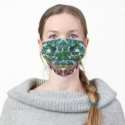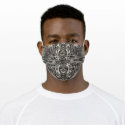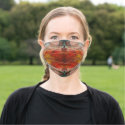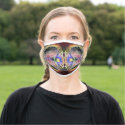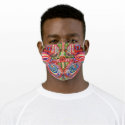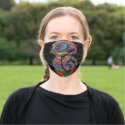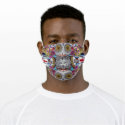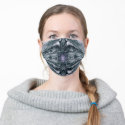
About Face Masks and the dangers of wearing them because they could cause a condition called Hypoxia - first of, the clinical explanation what it is: Hypoxia and hypoxemia facts Hypoxia is a condition or state in which the supply of oxygen is insufficient for normal life functions. Symptoms of hypoxia and/or hypoxemia may be acute or chronic and vary in intensity from mild to severe. Common acute symptoms are: shortness of breath, rapid breathing, and a fast heart rate. Severe symptoms include: The inability to communicate, Confusion, Possible coma or death. ................................................... READ MORE
Next, this is what I had written about in comments before
(in German, I am now attempting to translate to English):
Please note because of masks - and ESPECIALLY the FFP-2 masks (or also N-95): first, there are different versions, basically either with or without a valve. The masks with valve protect you, but not others, precisely because you exhale through the valve.
The masks without a valve, but also to a certain extent the surgical masks, have one major disadvantage, namely rebreathing of CO² - and this can lead to shortness of breath. If the oxygen content of your breathing air is less than the minimum value of 19.5%, then you are in an endangered zone - a zone in which the canary in the coal mine drops off his perch and this indicates that you should quickly be getting out into the fresh air! If you get short of breath, get a headache and chest pressure, it does not mean that you are infected with COVID-19, but it means that you are suffering from a lack of oxygen, which in the case of only one percentage point below the lower limit can lead to dizziness, fainting and even death!
Here is the background, in a few words,
from a document that you find the link on the bottom of the quote:
In a doctoral thesis from the Technical University of Munich in 2005, examining the effects of wearing, among other things, simple protective masks. The conclusion is terrifying.
Immediately after putting on a normal thin surgical mask, you breathe in much more exhaled CO2. The effects are so strong that the doctoral student was only allowed to test the subjects over a period of 30 minutes so as not to damage them. This leads to tiredness, faster breathing, irregular heartbeat, poor concentration, poorer fine motor skills.
(Note: this Paper is in German)
https://mediatum.ub.tum.de/doc/602557/602557.pdf
Additional Resources
Preliminary report on surgical mask induced deoxygenation during major surgery
Surgeons in the operating room frequently experience physical discomfort, fatigue, and possibly even deterioration of surgical judgment and performance.
The Physiological Impact of N95 Masks on Medical Staff
Wearing N95 masks results in hypooxygenemia and hypercapnia which reduce working efficiency and the ability to make correct decision.
Headaches and the N95 face-mask amongst healthcare providers
Healthcare providers may develop headaches following the use of the N95 face-mask. Shorter duration of face-mask wear may reduce the frequency and severity of these headaches.
With apologies to my English Readers, here is a important source from the German Ärzteblatt. You might be able to read it if you have Google Translate installed.
Nicht für jeden ist das Tragen einer Maske unbedenklich
Dr. Edwin Böhlke, Geschäftsführender Oberarzt an der Klinik für Strahlentherapie und Radioonkologie des Universitätsklinikum Düsseldorf erklärt um was es hier geht.
Nicht für jeden Menschen ist das Tragen einer Maske unbedenklich. Das gilt für alle Patienten mit einer symptomatischen und instabilen Angina pectoris und einer symptomatischen chronisch-obstruktiven Lungenerkrankung (COPD) beziehungsweise eingeschränkter Lungenfunktion.
Bei starker körperlicher Anstrengung besteht bei ihnen die Gefahr der Hyperkapnie. Kann das Kohlendioxid (CO2) aufgrund des erhöhten Luftwiderstands in der Maske nicht richtig abgeatmet werden, könnte es sich im Blut anreichern und den pH-Wert im Blut senken. Der erhöhte CO2-Partialdruck würde dann zu einer respiratorischer Azidose führen.
Following my writing, I happened to find a video from a scuba instructor on YouTube that speaks about Hypoxia and the dangers of drowning because of it caused by wearing cheap and inadequate masks. In conversation with a friend who was also a experienced diver, he confirmed that this danger is common knowledge among scuba divers:
The Death Mask
Full Face Snorkel Masks like this one are causing snorkeler deaths. Time to try one out...
Snorkel Bob's, Hawaii's leading snorkel retailer refuses to sell them. Tour operator Hawaii Ocean Project won't allow their guests to use them, even if you bring your own.
Just to be clear: first they passed out because of Oxygen deprivation caused by Hypoxia, then drowned face down floating in the water.
Getting back to PPE Face Masks:
If you see someone on the street, wearing a face mask and staggering around, don't assume they are drunk! They need help to properly breathe again!
IMPORTANT UPDATE (May 9th 2020)
Event though it was already available at the time I posted this blog, I neglected to include the new law for easing restrictions in Austria, put in force on April 30, 2020. What follows is the link to the actual official text, and a relevant excerpt about Face Masks (in German . last sentence I translate to English):
Öffentliche Orte
§ 1 (3) Im Massenbeförderungsmittel ist gegenüber Personen, die nicht im gemeinsamen Haushalt leben, ein Abstand von mindestens einem Meter einzuhalten und eine den Mund- und Nasenbereich abdeckende mechanische Schutzvorrichtung zu tragen. Ist auf Grund der Anzahl der Fahrgäste sowie beim Ein- und Aussteigen die Einhaltung des Abstands von mindestens einem Meter nicht möglich, kann davon ausnahmsweise abgewichen werden. Ausnahmen § 11. (1) Diese Verordnung gilt nicht für (3) Das Tragen von einer den Mund- und Nasenbereich abdeckenden mechanischen Schutzvorrichtung gilt nicht für Kinder bis zum vollendeten 6. Lebensjahr und für Personen, denen aus gesundheitlichen Gründen das Tragen der Vorrichtung nicht zugemutet werden kann.
This is the important part about Face Masks - in English:
The wearing of a mechanical protective device covering the mouth and nose area does not apply to children up to the age of 6 and to persons who cannot be expected to wear the device for health reasons. 
|
OTTO RAPPThis blog is primarily art related - for my photography please go to Archives
April 2024
Categories
All
|
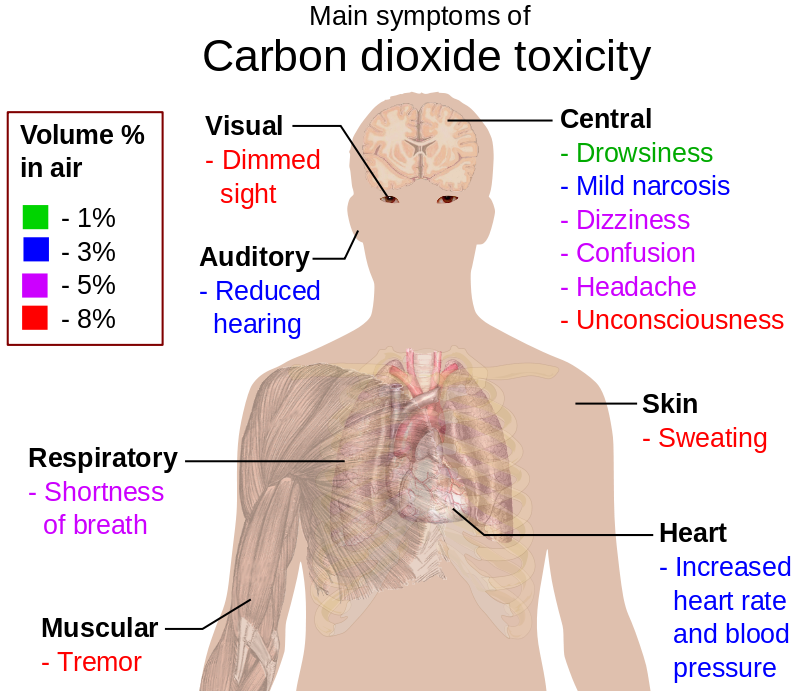
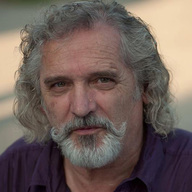
 RSS Feed
RSS Feed



